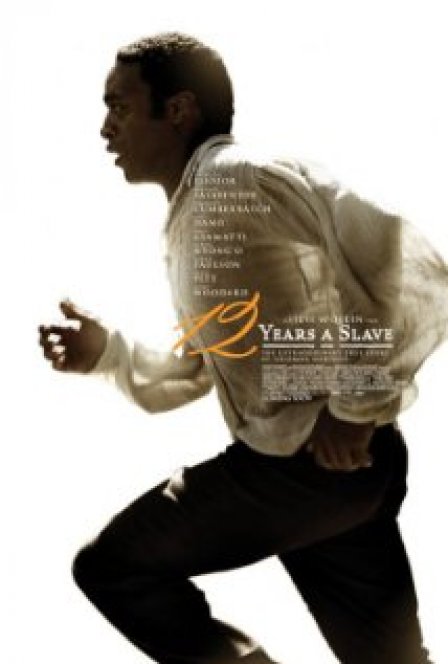12 Years a Slave stands very tall among historical epics about atrocities, which usually feel as though they were bankrolled by studios on condition of assuaging consciences instead of agitating them. That warrants much praise and serious attention, but I fear it will also drive many to regard the film for its best qualities — which are in no short supply — and distract them from its shortcomings.
It’s probably for the best that 12 Years a Slave came out after Django Unchained: the ahistorical comedy and action in that film may have been a perfect cultural primer for this one’s authenticity. While some liberties were taken with its source material, the 1853 autobiography of Solomon Northup, it is nevertheless a detailed and accurate account of the life of a free black man from New York City, who is kidnapped and sold into slavery between 1841 and 1853. Solomon (Chiwetel Ejiofor) soon finds himself hiding his education and origins as he endures lashings, attempted hangings, and copious beatings.
I count my lucky stars that it bounces so far back from Shame (TMT Review), an attempt at character study that was capsized by a frustratingly opaque character. Instead, much like McQueen’s freshman effort Hunger, 12 Years a Slave follows a man of unfailing resilience through a moment in history that finds him on the losing side of circumstance; like Hunger (TMT Review), it illuminates a moment in time by fixating on the human cost of political contradictions. Maybe history is McQueen’s strong suit.
Visually, the film is rough and loosely composed, clearly a deliberate decision by McQueen, whose prior films have had very fussy camerawork. Here, several shots are out of focus; there, others tilt too slowly to catch actors’ movements. By permitting and encouraging these ‘flaws,’ the director attempts to remove any sense of pictoral beauty or romanticization. Still, the most effective visuals in the film come during extended takes that move with laser precision from one striking composition to the next. Those shots are by and large the most powerful moments of the film; otherwise, its aesthetic doesn’t always make sense to me. An unbalanced image doesn’t create tension in and of itself; it must be a motivated counterpoint to the content, or at least to adjacent shots. McQueen’s direction isn’t bad — often it’s great — just inconsistent.
But Ejiofor, not camerawork, is the undeniable bedrock of the film, and his performance as Northup is unshakable. Throughout his whole dozen-year ordeal, he maintains a desperate dignity, even nobility, about him. But that same nobility makes me wonder how faithful a portrait of Northup the film could be. When the real Northup fell into the ownership of plantation owner Edwin Epps (played in the film by Michael Fassbender), he became a driver, tasked with the oversight and punishment of fellow slaves at work. There is one instance in the film when the Epps forces Northup to whip fellow slave Patsey (Kenyan actress Lupita Nyong’o, here making her stunning American debut), but Northup must be forced to do so, and he soon refuses to continue. Northup’s role as a driver is omitted entirely. Maybe it’s a fair cop to likeability or time constraints, but I can’t help feeling that omitting this fact potentially waters down even more disturbing truths about the impact of slavery.
Although it’s otherwise an unsparingly brutal work, there are other hints of filmic populism, most egregiously Hans Zimmer’s score. That I quickly identified his hand in the music (with no prior knowledge of his involvement or sight of his name in the credits) is not an indication of a distinct style, but of trademark and ever-worsening faults. Even in its most minimal string arrangements, his crushing synthetic production is immediately apparent, and the completely undeveloped four-note main theme is a self-plagiarism (of “Time” from Inception) of a self-plagiarism (of “Journey to the Line” from The Thin Red Line). Granted, Zimmer’s brass blasts find textural haven in scenes of torture or barbarity, probably because those are the only qualities that match any of his music these days.
But despite these and other formal gripes — I wish movies would stop opening with meaningless flash-forwards — to deny that 12 Years a Slave is an extremely brave, mature depiction of an inhuman era in American history would be to demand far too much of it. In full awareness of the problems I had with the film, my eyes were wet when the credits rolled. As someone jaded to few things more than the words, “This film is based on a true story,” that takes a hell of a lot.

